RV camping trips are a memorable pastime for people of all ages.
But to make sure the memories are good ones, there are rules you need to follow because we all know that an RV vacation can quickly become a camping nightmare.
To make sure you have the best RV trip possible, follow the Seven Questions Rule below.
Why The Seven Questions Rule is Essential
When you are RVing, a lot can go wrong without proper preparation. You may find yourself stuck with nowhere to stay.
Or maybe you’re screaming at your partner as your rig all but stops while crawling up a steep mountain pass. Worse still, you could find yourself dealing with a break-in after returning from a fun day of adventuring.
While these are some of the worst-case scenarios, they can happen. The good news is, you can avoid them by asking yourself these seven questions.
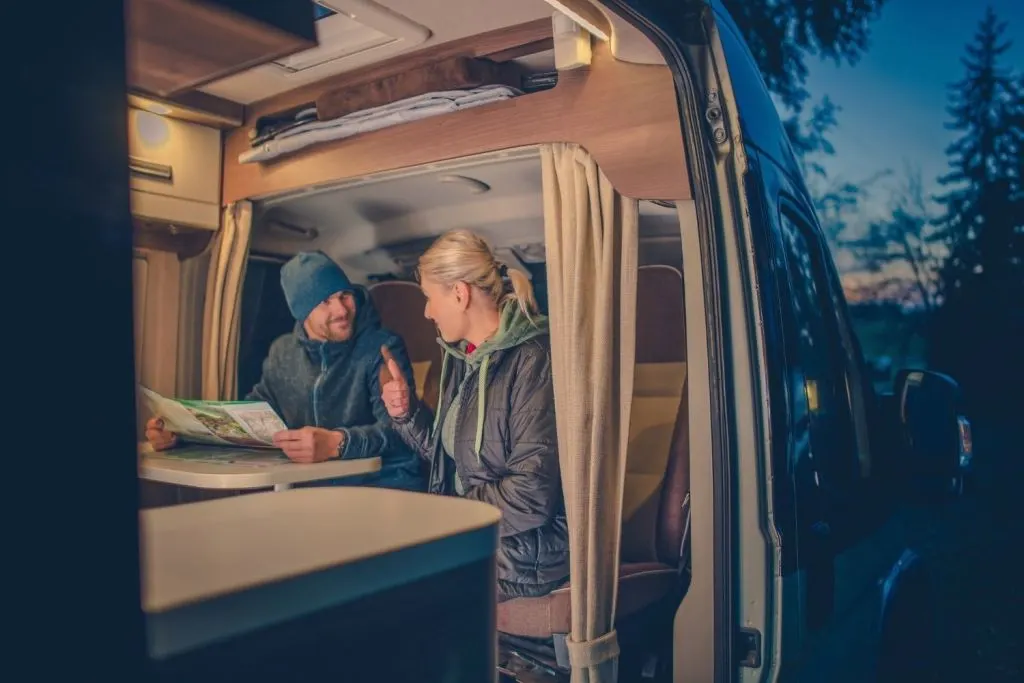
1. Do I Need a Reservation?
If you are staying at an RV park, having a reservation is in your best interest. While not all RV parks require reservations, booking in advance ensures you have a place to stay.
Often you can book online or else with a quick phone call. Reserving a site is also a good idea because it ensures your rig will fit and you’ll have the hookups you were expecting.
If you are boondocking, you won’t need a reservation. These sites are first come first serve. That means you need to hit the road early to make sure you get there before everyone else does.
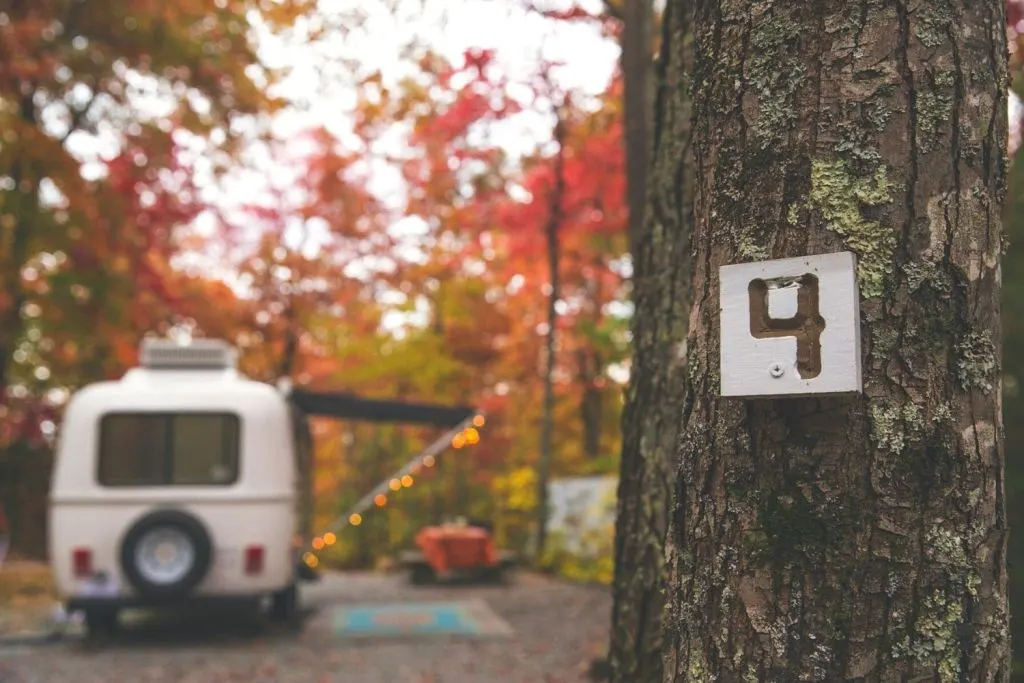
2. Do I need Cell Connectivity?
The next question to ask is regarding cell service. While not absolutely necessary for camping, cell service is nice to have. It can help with navigation or in case of emergency. If you’re working from the road, though, you definitely need to have an internet connection so you can do your job.
You should research the destination beforehand to determine what the coverage is like. You can look on your cell carrier’s website or check reviews from other campers. Then, if needed, you can get or bring along a cell booster. A cell booster is a simple way to get better connectivity while traveling.
If the RV park you’ll be staying at offers Wi-Fi, another way to improve connectivity is a Wi-Fi booster or Wi-Fi repeater. RV parks are notorious for having slow internet speeds. A Wi-Fi booster can help improve this.

3. Is the Route RV-Safe?
Getting to your destination is just as important as the camping trip itself. A lot more goes into driving an RV than a car.
To make sure the route is RV-safe, there are a few things you need to consider. For example, are there low clearance bridges, steep mountain passes, weight restrictions, or the like on your route?
If you’re not sure, one of the best ways to plan an RV safe drive is to use an RV trip router, like RV Trip Wizard. Similar to Google Maps, an RV trip router can help you navigate from place to place with step-by-step directions.
The bonus of an RV trip router though is that it was designed with RVers in mind. This allows you to avoid all the scary, stressful, and down-right dangerous situations you might otherwise encounter on the road.
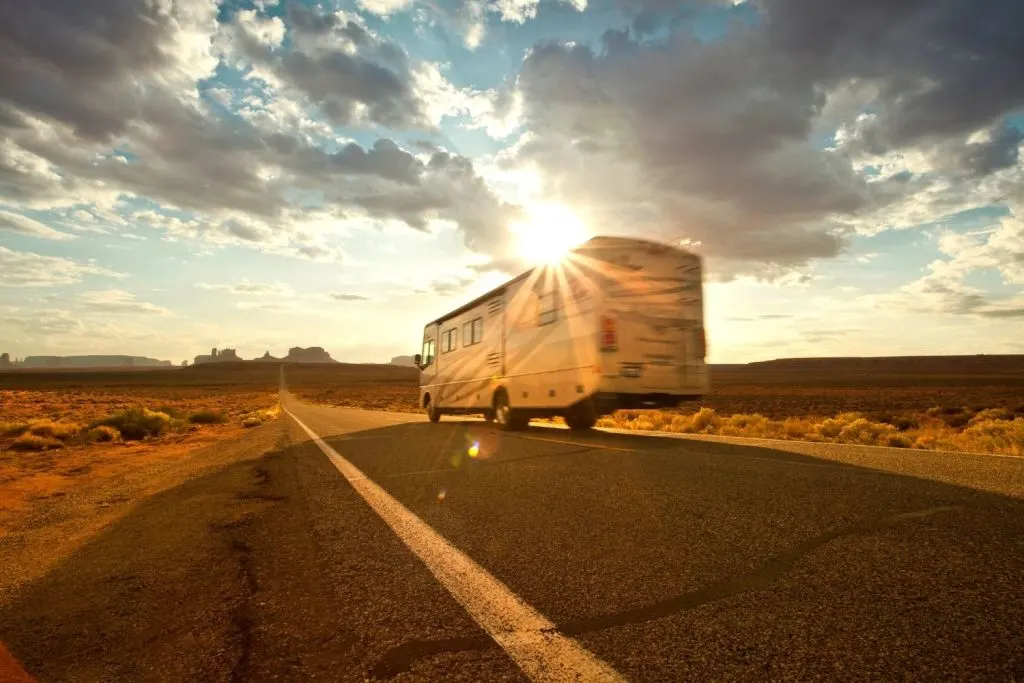
4. Is My Camping Destination Safe?
It is also smart to investigate the safety of the RV camping trip destination. This is especially important if you are traveling alone. You can read reviews online for most RV parks through Google Reviews, Trip Advisor, Campendium, and other similar sites.
Fellow RVers can share if there have been thefts or break-ins at the RV park. If you are camping off the grid, you can look up crime statistics for the general area. Many boondocking sites also have reviews that will give you a clue as to the safety of the area.
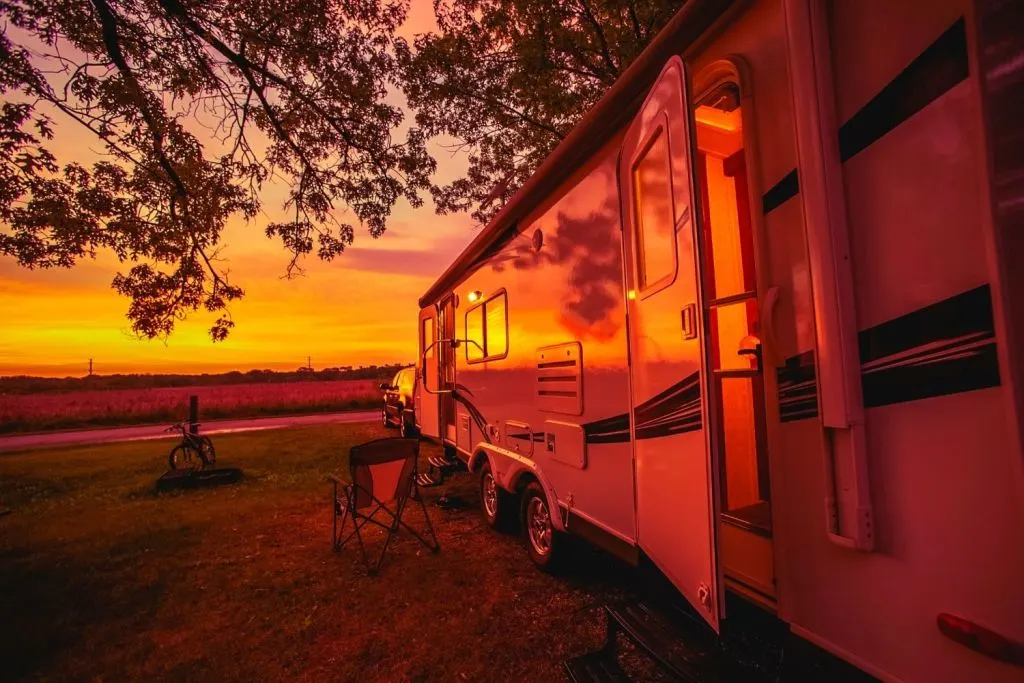
5. Will I need to Overnight Park During Travel Days?
If you’re taking a long RV trip, you may need to make a plan for overnight parking. While you could stay at an RV park, this can be expensive when you just need a place to sleep for a few hours. A better option is to find a place for overnight parking.
When you use overnight parking, you won’t have any hookups. You’re basically just parked in a parking lot. Most of the time you won’t use your jacks or slides, although we have seen people do this.
There are a variety of places you can park overnight for free. Some big box stores allow this, including some Walmarts and Cabela’s. Other options to look into include casinos, rest stops, or a personal favorite, Cracker Barrel.
Overnight parking and sleeping in your RV is usually not allowed on residential streets. But for most of the above suggestions, you won’t have any trouble. Just don’t stay there for days on end. It is overnight parking after all. Before you commit to parking overnight, double-check that no signs prohibit this. Once you’re sure, lock up and catch some Zs.
Pro Tip: Here are the don’ts of overnight parking at Walmart.
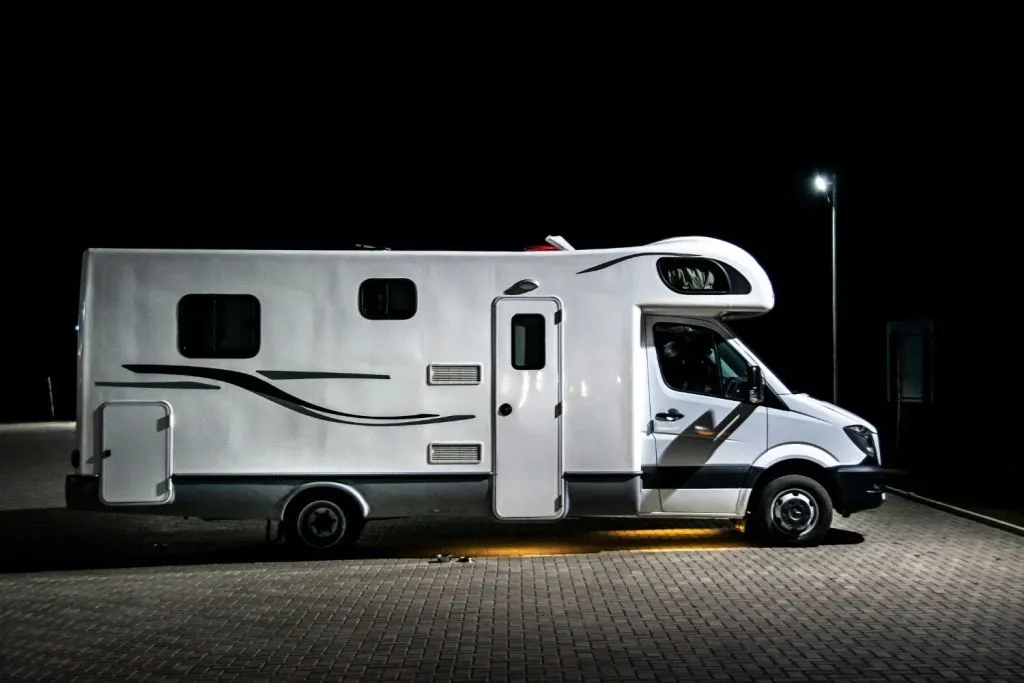
6. Where Will I Dump Black Water?
Before an RV camping trip, you also need to know where (and how) you will dump your black water tanks. If you’re staying at an RV park, they may have full hookups, but check beforehand.
If there aren’t sewer hookups at the park or you are boondocking, you need to have a plan for where you can dump your tanks. You can often find dump stations at state parks, other RV parks, and even some gas stations.
You’ll likely have to pay a fee, but it usually isn’t too much. We have even seen a free dump station at Cabela’s once, so maybe your overnight parking spot will have a similar bonus.
Before you leave, also double check that you have all the supplies needed to dump your tanks, including your sewer hose and disposable or washable gloves. It would be a real drag to have to buy these again if you left them behind on a long trip.
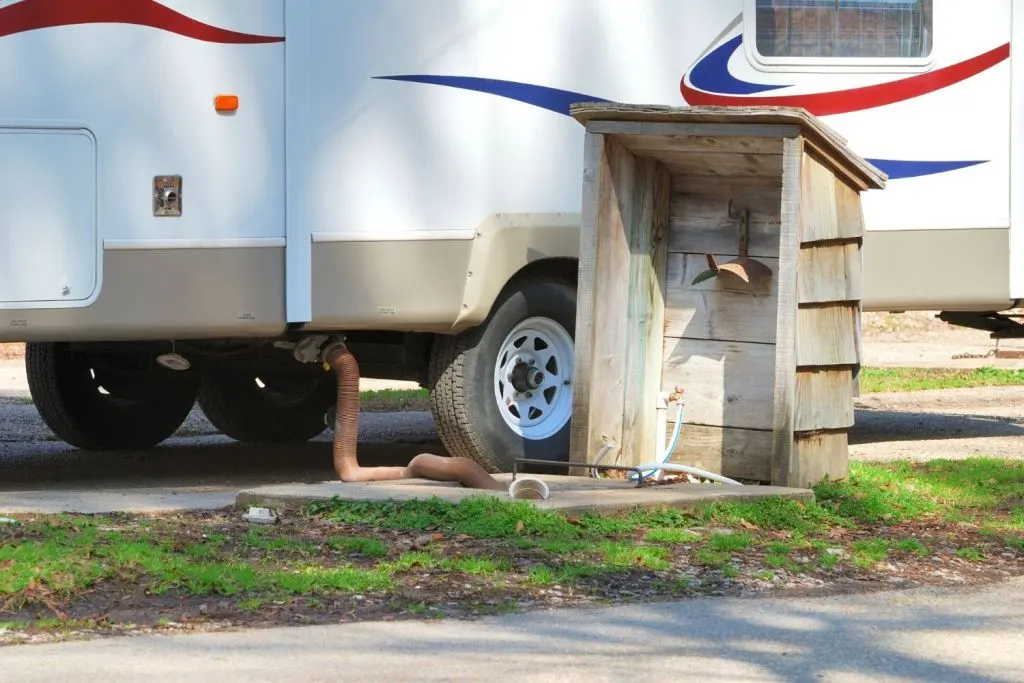
7. Will I Be Denied at Any RV Parks?
Because RV parks are privately owned, they may have rules that prohibit certain people from staying at RV parks. One common rule to be aware of is the RV 10-year rule. Some RV parks prohibit rigs that are older than 10 years.
They do this because older rigs might look cheap or rundown, and they may even question if the owners will pay their rent. Or worse, get stranded there with a broken down rig. You can usually get around this rule even with an older RV if you have a nicely maintained rig.
Gel coats are great for this as they look new for much longer. You may have to send pictures to prove the quality of your rig if it is older than 10 years.
There are also RV parks that are 55+ resorts. If you don’t meet the age requirements, you won’t be allowed to stay here. So make sure you know in advance if an RV park is 55+.
Finally, if you are traveling with pets, some RV parks don’t allow them. They may not allow any pets or may restrict certain breeds. You might be able to find this information on the park’s website. But if in doubt, call them to inquire so you don’t bring your fur baby along only to be turned away.
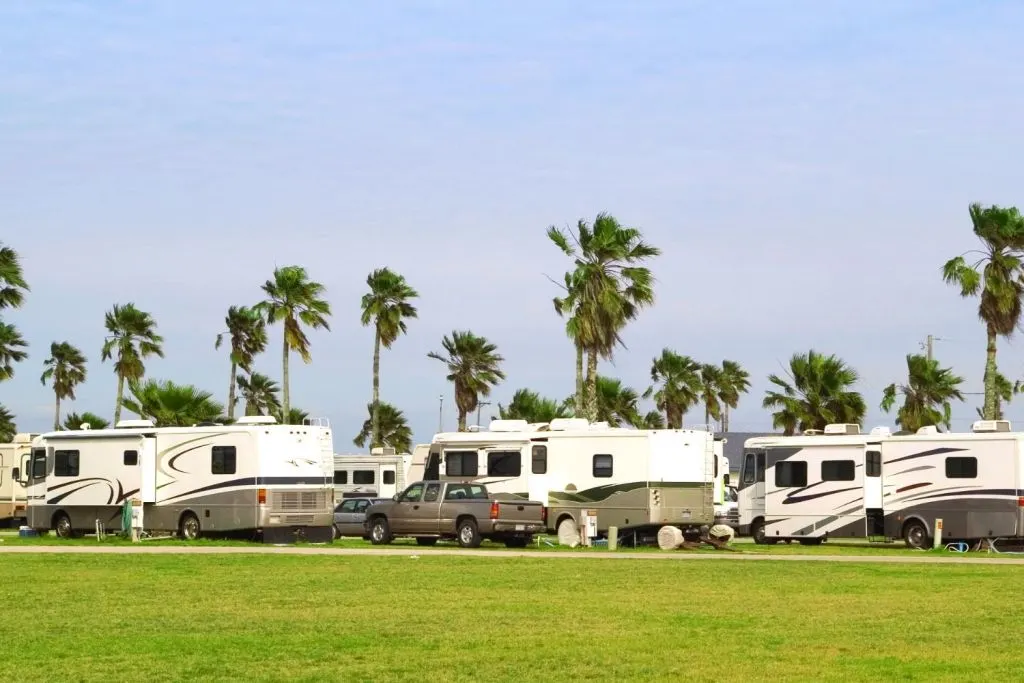
Be Prepared for Any RV Camping Trip With These 7 Questions
RVing is awesome, but there is still the potential for things to go wrong. While we encourage people to be laid back and go with the flow when problems arise, there are ways to prevent problems in the first place.
By asking yourself these 7 questions before heading out on your next road trip, you will be in for a much smoother ride.
Discover the Best Free Camping Across the USA
To be honest with you, we hate paying for camping. There are so many free campsites in America (with complete privacy).
You should give it a try!
As a matter of fact, these free campsites are yours. Every time you pay federal taxes, you’re contributing to these lands.
Become a FREE CAMPING INSIDER and join the 100,000 campers who love to score the best site!
We’ll send you the 50 Best Free Campsites in the USA (one per state). Access the list by submitting your email below: